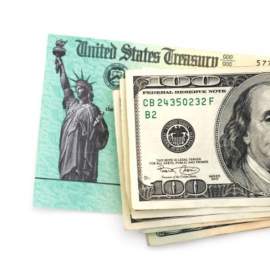
Rhode Island Tax

Individual Income Tax Forms
Form RI-1040 Resident Individual Income Tax Return
Form RI-1040NR Nonresident Individual Income Tax Return
Corporate Income Tax Forms
Form RI-1120C Business Corporation Tax Return
Form RI-1120S Business Corporation Tax Return
Sales Tax Forms
Exemption Form
Form Streamlined Sales Tax Return
Form BAR 092010 Business Application and Registration
Form Claim for Refund - Sales or Use Tax 2011
Form T205 Consumer Use Tax Return
Form Sales and Use Tax Return Quarterly
Form Sales and Use Tax Return (Monthly)
Form Annual Reconciliation 2011
Property Tax Forms
Form 1040H Property Tax Relief Claim
Primary Concerns:
The Ocean State, despite being the country's smallest state, still faces many of the same big problems that are facing states all over the country due to the current economic climate. Chief among these problems is state budget shortfalls causes by limitations of tax revenue. Due to serious flooding caused by storms in early 2010 that effected over 10,000 homeowners, the collection of revenues appears to be very limited going forward, as delayed tax filing deadlines combined with emergency tax breaks for those who endured flood damage will cause less money coming into the state's already depleted coffers.
One of the immediate actions Rhode Island has undertaken has been to delay the dispersal of tax refunds in order to have enough cash on hand to pay bill as necessary. Many states have enacted this controversial, but necessary, measure, but due to the effects of flood damage with many taxpayers trying to rebuild and restore what they lost, it has made seem the state seem greedy and unsympathetic.
Still, the state is faced with a considerable budget shortfall, and many feeling that the losses will eventually have to be felt by the state's corporate sector, which already endures a very high flat income tax. However, with individual income taxes staggered to where households with high incomes already endure high taxation, and with the state committed to keeping sales tax stable, looking to corporate tax revenues may be the only way Rhode Island to keep its proverbial head above the proverbial water.
Income Tax:
All individuals residing in Rhode Island full or part time or reside out of state but draw income from within the state are obligated to file a state income tax return. Rhode Island's personal income tax is at a progressive rate staggered over a number of brackets.
For single taxpayers paying less than $31,850 the rate on income is 3.75%. For income between $31,850 and $77,100 the rate on all excess income above the base of $31,850 is 7%. Between $77,101 and $160,850, the rate on excess income above the base is 7.75%, and between $160,851 and $349,700 the rate on excess income above the base will be 9%. On income above $349,701, the rate on the excess is 9.9%, one of this highest individual income tax rates in the county.
For married persons filing jointly, the rates remain the same, but the bracketing is different. All income below $53,150 is taxed at 3.75%. 7% is the rate on all excess income between $53,150 and $128,500, with 7.75% for excess between $128,501 and $195,850. Between $195,851 and $349,700 the rate on the excess is 9 percent, and like with single payers, the rate above $349,701 is 9.9%.
Corporate Income Tax:
Rhode Island has a flat income tax on all corporations of 9%, which is one of the highest in the country. In addition to this, the state also implements a litter permit on businesses that sell food and beverages, has an unemployement compensation tax that all employers must pay, and an additional Business Corporation tax.
Property Tax:
Rhode Island has some of the highest property taxes in the country, and property taxes are collected at both the state and local level (though far more at the local level). Taxes are levied against all forms of personal property and their is also a motor vehicle excise tax.
The real property tax rales are also taken state wide against full value of the property instead of against taxable property. In many instances, property taxes can vary between residential and commercial property by as much as 80% (though in some counties they remain constant).
Real property tax rates vary on a county to county basis, but residential properties are usually between $12 to $18 per every $1000 of the property's value. Property values are determined by the county assessor.
Sales Tax:
Rhode Island sales tax is 7% statewide (which is logistically understandable since the state is so small). Exempted items include unprepared food, prescription and non-prescription drugs, all clothing and footwear, newspapers, and many funery supplies, like coffins. There is also an additional 1% tax statewide on all restaurant services.
Rhode Island is also part of the Streamlined Sales Tax Initiative, which is a multistate initiative that tries to standardize the items and services that are taxed nationwide, plus standardizes the means by which the taxes will be collected. Since many states require sales taxes to be collected in many different ways, this can be problematic for many franchises and corporations who operate in many different states.
Rhode Island also has the highest cigarette tax in the nation, at $3.46 per pack, and gasoline is taxed at $0.33 per gallon.
Tax Forms:
In Rhode Island, the state income tax form is called the 1040 (just like its federal counterpart), with many variations available depending on circumstances. The 1040NR is for nonresidents, for instance, and 1040MU being for individuals who pay taxes to multiple states.
The corporate tax forms are called the 1120, and the also have man variations, such as the 1120ES for estimated taxes.
NEXT: South Carolina State Tax





















